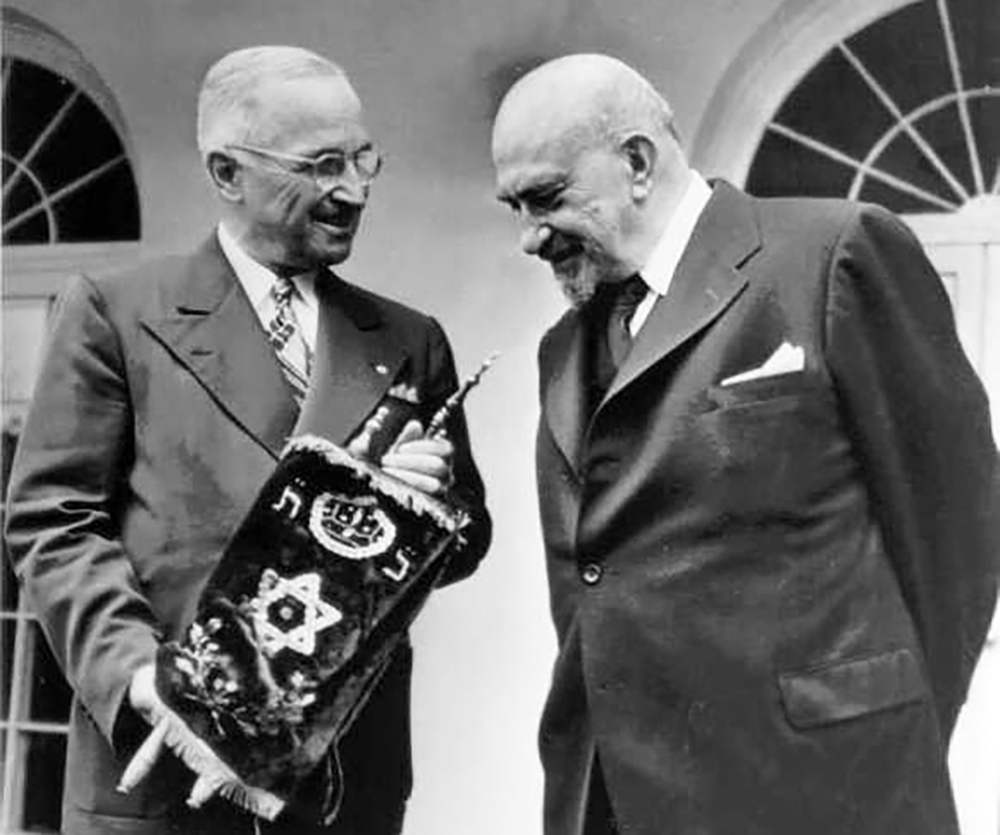By Gedaliah Borvick
We recently visited the Weizmann Institute in Rehovot, and I parked my car a few blocks away on Weizmann Street. Not only is Rehovot Weizmann-focused, but over a dozen streets plus major institutions across the country are named in Chaim Weizmann’s memory. Let’s learn about Israel’s first president.

Chaim Weizmann was born in 1874 in Belarus, White Russia, and studied chemistry in Germany and then Switzerland, where he earned his doctorate. During his studies, he met his wife, Vera, who served as his life-long partner in all of his academic and political activities.
Weizmann moved to England in 1904, and was granted professorship at the University of Manchester. His capacity for research was legendary, and his relentless efforts generated approximately 100 patents. His most famous invention was a new method to produce synthetic acetone, an important ingredient used in manufacturing smokeless gun powder, which was critical to the Allied war effort in World War I. Through his work, Weizmann gained the trust and appreciation of many prominent British journalists and senior Cabinet members, in particular First Lord of the Admiralty Arthur Balfour and Minister Lloyd George.
Through his deep and powerful network, which represented a veritable “who’s who” of British society, Weizmann became Europe’s most prominent Zionist leader. He leveraged these relationships to help secure the Balfour Declaration, a statement of support for the establishment of a national home for the Jewish people in its historical homeland. This document was a crucial breakthrough, as it represented the first official endorsement of the Zionist movement by a major global power.
Weizmann’s passionate belief in self-determination—that the Jews were entitled to return to their homeland and create a safe haven—was based on having personally witnessed Russia’s state-sponsored pogroms in the 1880s. In 1907, Weizmann made his first visit to Israel, which strengthened his conviction to settle the land while simultaneously participating in political lobbying. This combination approach became known as “Synthetic Zionism.”
Between 1921 and 1946, Weizmann served for over 20 years as president of the World Zionist Organization (WZO) and as its main liaison with the British government. Using his professional experiences as a model for the integration of science and industry, he successfully promoted projects such as the Dead Sea potash plant and the Naharayim hydroelectric power plant.
Weizmann valued science as an important tool to develop a modern economy, and worked to promote higher education in Israel. He was one of the founders of the Hebrew University, as well as the Sieff Institute in Rehovot, in which he served as president and also pursued research in its labs. In 1949, the academy, which grew dramatically in size and stature since its inception in 1934, was renamed the Weizmann Institute of Science in his honor.
Following the Nazis’ rise to power in Germany, Weizmann dedicated himself to saving European Jewry. He also aided the British war effort against Germany, utilizing industries throughout Israel, as well as the labs at the Sieff Institute, to help the British army.
In 1947, Weizmann played a major role in garnering support for the U.N. Partition Plan, and met world leaders, including U.S. President Harry S. Truman, whom he encouraged to support an independent State of Israel, despite the objections of the State Department. In 1948, Weizmann was elected as the first president of Israel, and served in this ceremonial role until he passed away in 1952.
Chaim Weizmann was a man ahead of his time. His vision of establishing prestigious institutions for research and higher learning, which would advance the country’s technological prowess, was prescient. Weizmann’s dream of Israel being a global leader in science and technology has become a reality.
Gedaliah Borvick is the founder of My Israel Home (www.myisraelhome.com), a real estate agency focused on helping people from abroad buy and sell homes in Israel. To sign up for his monthly market updates, contact him at [email protected].









